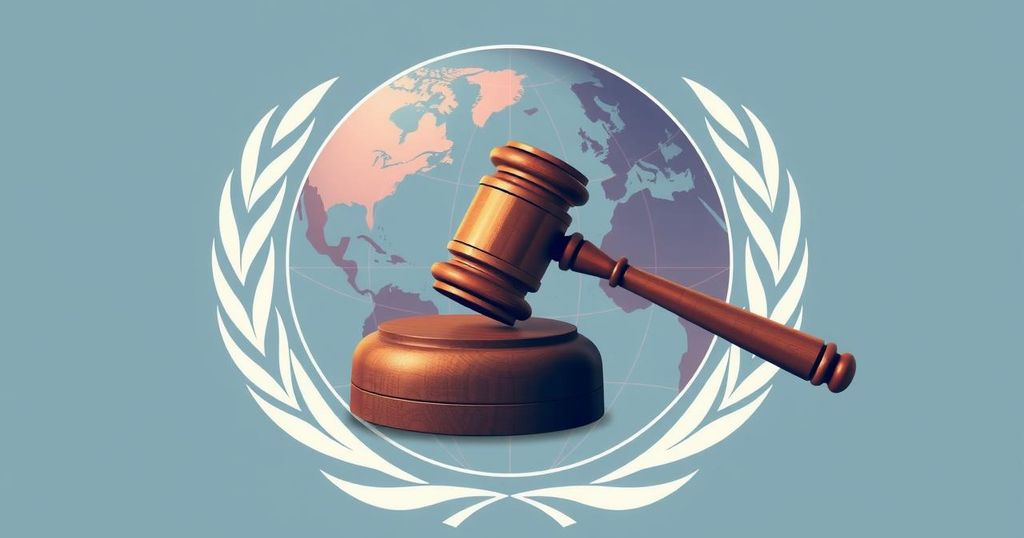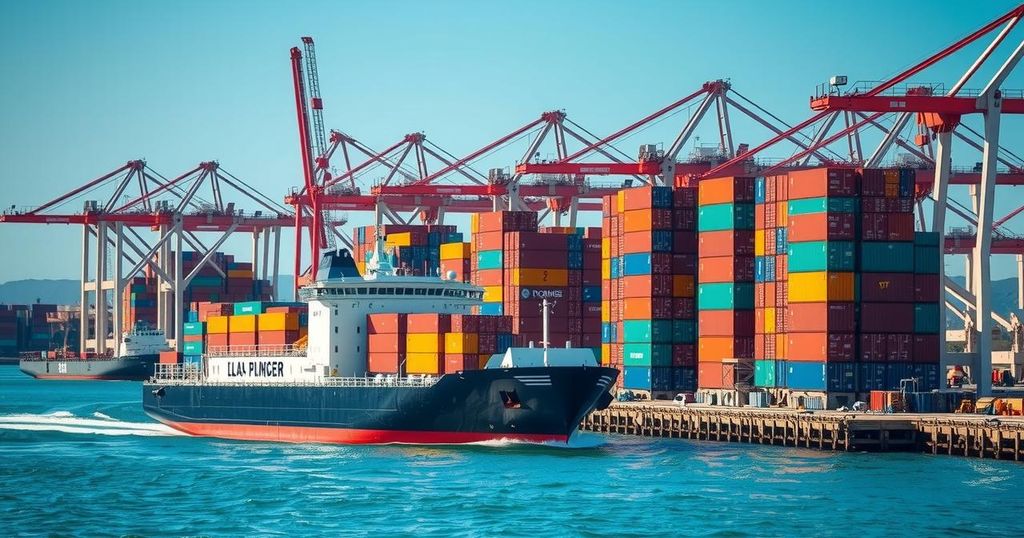Politics
AP, CENTRAL AMERICA, DEPARTMENT OF GOVERNMENT, DEPARTMENT OF GOVERNMENT EFFICIENCY, DONALD TRUMP, EL, ELON MUSK, LEGAL ISSUES, MARCO RUBIO, NATIONAL SECURITY, NAY, NAYIB BUKELE, NORTH AMERICA, OVAL OFFICE, RODRIGO CHAVES, RUBIO, STATE DEPARTMENT, SUPREME COURT RULING, TRUMP, TRUMP ADMINISTRATION, U. S, U. S. AGENCY FOR INTERNATIONAL DEVELOPMENT, U.S. ELECTIONS, UNITED STATES, USAID
Clara Montgomery
Trump Weighs El Salvador’s Offer to House Violent Criminals
President Trump is assessing an offer from El Salvador to imprison violent American criminals, highlighting potential legal and economic benefits of such an agreement. Secretary of State Marco Rubio confirmed the complexities involved while emphasizing the significance of cooperation with Central America. The discussions coincide with ongoing concerns over U.S. funding for foreign aid amid administrative changes, reflecting a broader challenge in U.S. foreign relations and immigration policy.
On Tuesday, President Donald Trump revealed he is considering El Salvador’s proposition to accept violent American criminals in its prisons. This offer, made by Salvadoran President Nayib Bukele, entails that the Central American nation would willingly extradite U.S. citizens convicted of serious crimes, despite the legal complexities involved. Secretary of State Marco Rubio acknowledged these legal challenges but emphasized the unprecedented nature and economic benefits of such an agreement. The Trump administration has made immigration a focal point of its policies, especially during Rubio’s recent trip across Central America, where regional security and migration remained pressing issues.
During his tour, Rubio faced turbulence within the U.S. Agency for International Development (USAID) due to budget cuts announced by Elon Musk, who is directing efficiency initiatives. Trump’s decision to freeze foreign aid has generated uncertainty, resulting in numerous layoffs within USAID and disruptions in international assistance programs. Rubio criticized organizations that fail to understand waiver application processes, underscoring the importance of accountability in foreign aid.
Amidst discussions surrounding U.S. aid, Rubio and Costa Rican President Rodrigo Chaves highlighted significant challenges posed by drug-related violence and immigration in Costa Rica, which has transitioned from a mere transit zone to a destination for migrants. Chaves expressed the need for both nations to bolster their cooperative efforts against organized crime, with Rubio indicating the potential for continued U.S. assistance via exemptions.
Rubio’s meetings in Central America culminated with a discussion in El Salvador, where President Bukele reiterated the offer to take on U.S. convicts. Bukele’s government has promised to house only convicted criminals while instituting necessary fees to sustain its prison system, which reportedly has faced rampant overcrowding and poor conditions under an ongoing state of emergency.
The conditions in El Salvador’s prisons have drawn criticism due to inadequate sanitation and lack of basic amenities, amidst a backdrop of heightened security measures that have significantly reduced crime rates. The Trump administration has endeavored to reshape foreign relations through a controversial immigration agreement while the turmoil regarding aid funding complicates the implementation of U.S. policies abroad.
This article discusses President Trump’s consideration of an offer from El Salvador to house U.S. criminals, revealing significant legal implications and the broader context of immigration policy under his administration. Secretary of State Marco Rubio has been aiming to strengthen regional ties and discuss joint strategies to mitigate crime and migration. The article also outlines the challenges faced by U.S. agencies, particularly concerning funding and operational effectiveness amid contentious policy shifts.
In summary, President Trump is exploring El Salvador’s offer to accept violent U.S. criminals, which poses legal challenges but presents potential cost-saving measures. As immigration remains a focal point of U.S. policy, Rubio’s ongoing discussions in Central America reveal the complexities of foreign aid and international cooperation in addressing crime and migration. The situation underscores the delicate balance between maintaining domestic security and fostering foreign relations through mutual agreements.
Original Source: www.newschannel10.com








Post Comment